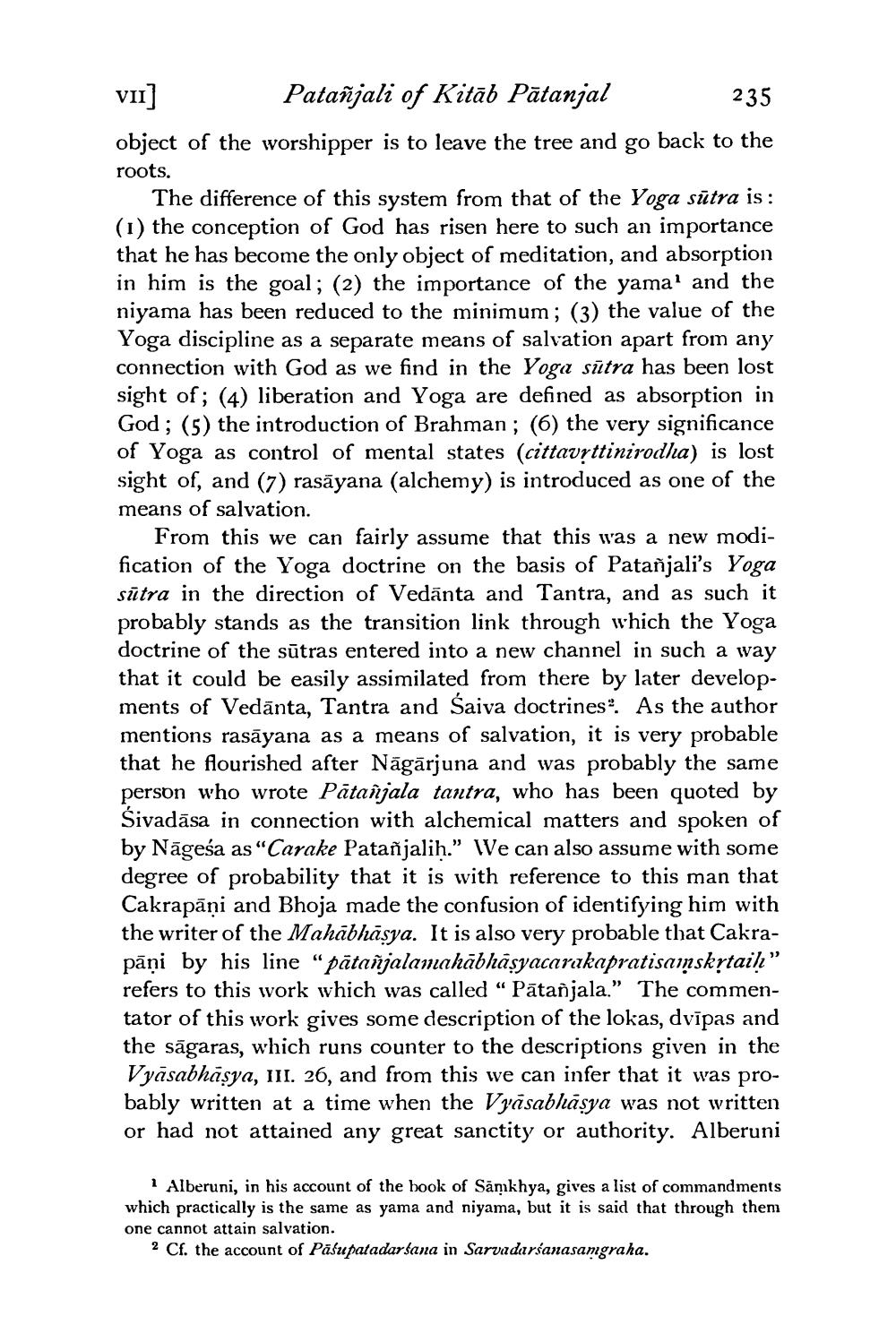________________
v11] Patañjali of Kitāb Pātanjal 235 object of the worshipper is to leave the tree and go back to the roots.
The difference of this system from that of the Yoga sūtra is : (1) the conception of God has risen here to such an importance that he has become the only object of meditation, and absorption in him is the goal; (2) the importance of the yama' and the niyama has been reduced to the minimum; (3) the value of the Yoga discipline as a separate means of salvation apart from any connection with God as we find in the Yoga sūtra has been lost sight of; (4) liberation and Yoga are defined as absorption in God; (5) the introduction of Brahman; (6) the very significance of Yoga as control of mental states (cittavrttinirodha) is lost sight of, and (7) rasāyana (alchemy) is introduced as one of the means of salvation.
From this we can fairly assume that this was a new modification of the Yoga doctrine on the basis of Patañjali's Yoga sūtra in the direction of Vedānta and Tantra, and as such it probably stands as the transition link through which the Yoga doctrine of the sūtras entered into a new channel in such a way that it could be easily assimilated from there by later developments of Vedānta, Tantra and Saiva doctrines". As the author mentions rasāyana as a means of salvation, it is very probable that he flourished after Nāgārjuna and was probably the same person who wrote Pātañjala tantra, who has been quoted by Śivadāsa in connection with alchemical matters and spoken of by Nāgesa as "Carake Patañjalih." We can also assume with some degree of probability that it is with reference to this man that Cakrapāni and Bhoja made the confusion of identifying him with the writer of the Mahābhāsya. It is also very probable that Cakrapāņi by his line "pātañjalamahābhāsyacarakapratisaiņskytaih” refers to this work which was called “Pātañjala." The commentator of this work gives some description of the lokas, dvīpas and the sāgaras, which runs counter to the descriptions given in the V yasabhāsya, III. 26, and from this we can infer that it was probably written at a time when the V yasabhasya was not written or had not attained any great sanctity or authority. Alberuni
Alberuni, in his account of the book of Samkhya, gives a list of commandments which practically is the same as yama and niyama, but it is said that through them one cannot attain salvation.
2 Cf. the account of Pāśupatadarśana in Sarvadarśanasangraha.




